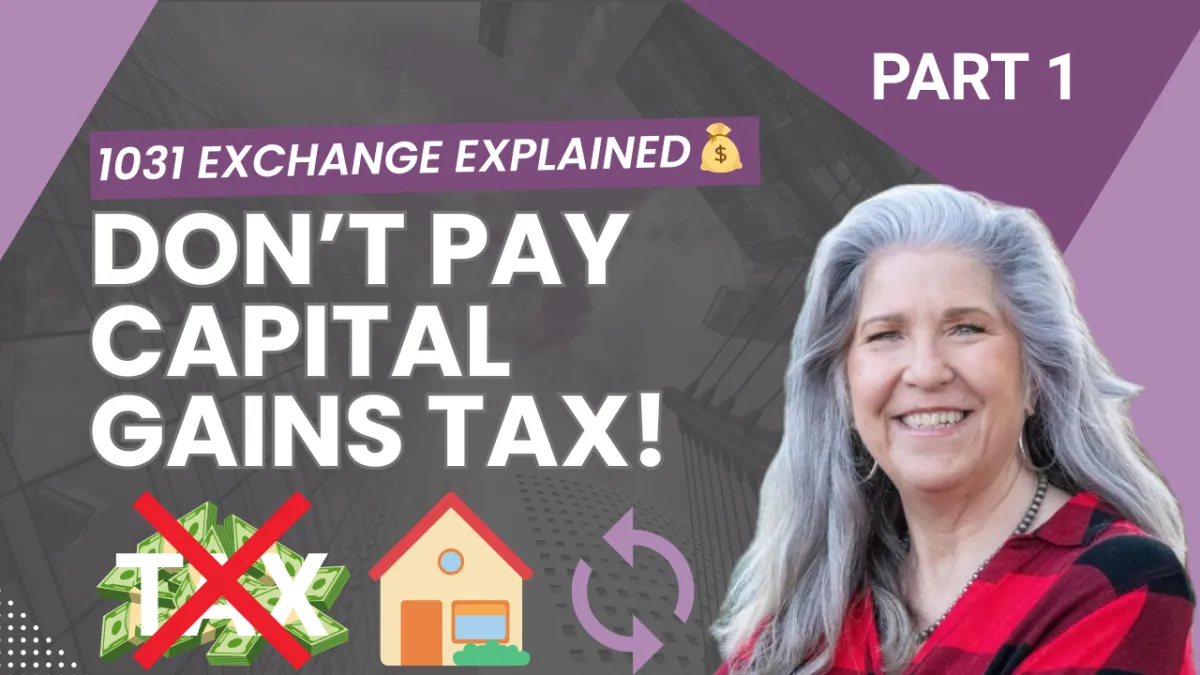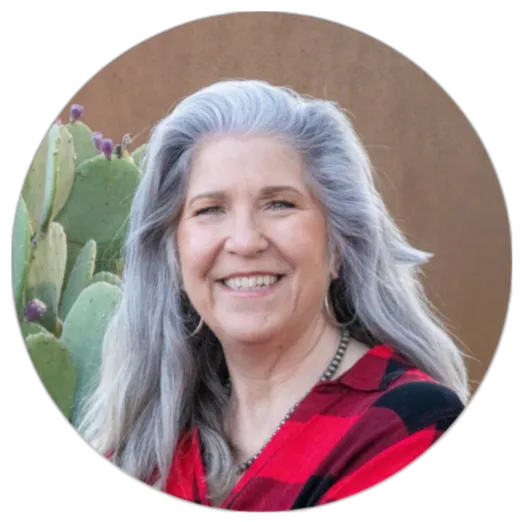
Unlock Real Estate Wealth: Master the 1031 Exchange Game! Part 1
👉 Watch the full video on YouTube!
Prefer to listen? Click to hear this post!
Judith:
Hi everyone. I am going to be talking about 1031 exchanges today. A little bit, just a snippet. I actually have the full phone interview coming up with a gentleman by the name of Rick Wittstock. He did a 1031 exchange workshop, and that is what you're gonna see in the rest of this video. And I wanted to bring it to you because I believe that 1031 exchanges are very important.
Piece of information for people to know that wanna save on their capital gains if they have a second home or even one investment property. Hi, I'm Judith Barnett with Judith Barnett Sells Homes and My Home Group Realty. This is to help educate you in regard to how to save. Money on your investment property.
Second homes: how to kick that tax money down the road and not pay capital gains.
Rick was. One of several 1031 exchange vendors that I have worked with over the years. And personally, as someone who owns investment properties, and my partner does as well, I think that it's important to know and share that information with our clients: you don't wanna pay Uncle Sam any more money than absolutely necessary, and you have invested a lot of money.
And time and energy into your second home, into your investment properties. And the best thing to know is how do I not pay Uncle Sam when I come to sell the properties? I want to upscale, I want to downsize, or I wanna sell completely. I don't wanna manage an investment property anymore. I don't wanna have a second home anymore.
And a lot of people don't know that you don't have to pay capital gains if you know about a 1031 exchange. And most people, that's like a foreign language. It's like, well, what is that? And is it legal? Yes, it's legal. A hundred percent legal. That's how a lot of people that are investors continue to make money and sell a property and buy a new property and not pay capital gains because they're reinvesting the capital.
Into a new real estate property, and he's gonna talk about what, like property is. It does have to be real property. So it can't be a boat, it can't be a car, it can't be stocks and bonds. It has to be real property. But that actually is a lot broader than most people realize. And one of the things that he talked about, which is of interest to me as I get closer to retirement age, is what they call a DST.
Which really is a group of people investing together into a real property like corporate buildings, apartments, things like that. And then you are just one of many partners, and you get, he calls it money in the mail every month for that investment. And they're pretty safe. They are secured and. You know, it's not gonna give you the highest return as you would like on a rental property.
But again, if you wanna retire and you don't wanna be dealing with rental properties anymore, and you don't wanna pay the capital gains, it's a great way to invest your money and not, and you just, as they say, you kick the taxes down the road, and at some point when you die, if you still have that.
Investment property or DST, I think that's what it's called, your family or whoever would inherit it. And typically, depending on what state it's in and whatever, you don't have to pay taxes on inheritance. In Arizona, there's no inheritance tax. I know in Minnesota, where I came from, there's no inheritance tax.
So that's something where even your family can inherit that benefit, that money, and not pay capital gains. So there's a lot of benefit to knowing about 1031 exchanges. It's also a great way, if you have a second property, there are some ways to leverage your second home, your home, that like, you know, in Arizona, people have a lot of second homes up in the mountains where it's cooler in the summer.
There are ways for you to rent that out. Not all the time on a very small amount, and then you can use that as a 1031 exchange when you go to sell that property. So I am just introducing this. I'm just kind of telling you why it's important. I want all of my clients to understand their options when it comes to investments.
Comes to buying and selling second homes and saving money. Nobody wants to pay capital gains tax. That's like everybody's worst nightmare. I think. We don't wanna pay Uncle Sam more than we have to. They already get enough. So that's my thoughts, and I'm just introducing Rick to you.
Please enjoy the video and watch for the full interview that I'm gonna be doing with Rick answering more detailed questions about 1031 exchanges, the benefits, the pros, the cons, the consequences if you don't know about it financially, and what that can do for people. Thank you.
Preserve Equity
Rick Wittstock:
That 700,000 to buy as much real estate as he can, and how much is he gonna buy with 25% down? $2.8 million worth of real estate. So if we imagine this one, he was making $10,000 gross rent. Okay? He sells it, takes this money, so he goes and buys this one for 400,000. So maybe it is $3 million properties.
Now he's making $30,000 gross rent. These is gross numbers, not minusing any of the deductions. 10 to 30. What if he does this thing here? One of you guys is his real estate agent. 'cause he just took this class and he's like, talk to Rick before you sell. He does a 1031 exchange for a thousand bucks. Now he's got a hundred percent of that million dollars, which 25% down.
What does that give him? $4 million that you can leverage to buy more real estate. So that's the 22 Euro client.
Calculation in Taxable Sales
You guys all know how to do taxes, right? He stole it for 300,000 minus commissions and closing costs. So if you ever have a client that's beating you up on how much you're charging them, and it's an investment property, you could say, you know what? You don't have to pay capital gains tax on my commission.
It's a hundred percent minus from the gross sales price. So when you're talking to my office or a 1031 exchange office, they're gonna say, what's your net sales price? Not your net proceeds, your net sales price. So it's gross minus commissions and closing costs, which will give you 280 as a net sales price minus the 125 up the top.
How much is the game? $155,000 on $300,000 sale. How much are they gonna have to pay capital base tax? Well, let's see 155. The first thing the feds are gonna take is 25% recapture on that $55,000 depreciation rate. So 25% on that is almost 14,000. The hundred thousand left over at 15%. But it could be as high as what? 20? I'm conservative. I'm just gonna say it's 15%. That's 15 grand. Then that's that, 3.8, the affordable healthcare tax, which is that 5,700. Then it's in Arizona, so that's 5% on the full amount. So that's 7,750. All said and done. How much do you have to pay in a $300,000 sale? $42,000 in capital gains tax.
Wow. Now, some people, that's a lot of money. And then some people like, I think everybody think that's a lot.
Exchange Vs. Taxable Sales
Introducing your client to the right people so they can make the right decision so that they have more money in their pocket. And are they gonna refer you up to other people? Yeah. 'cause most real estate agents like, oh, I don't know. Or they say nothing. Right This way, just bring it up. And if they have questions that are above you, I got a guy, let's see, he's available for a conference call.
I got a gal, or I got IPX, we call and any one of us would be happy to have that conversation with you. Cool. Alright, so here's just how I got that numbers. It's 300 minus commissions and closing costs. The 280, they paid off the $200,000 debt that gives them 80,000. If they were doing an exchange, if they worked, they paid a tax that gives them 37,800 to leverage to buy the new property.
So if you didn't know why people do 1031 exchanges. Is because of that, but you sell a 300,000 house and then now all you can buy is 189,000 house if you pay the tax versus if you do a 1031 change, you can buy a 400,000 house. It's not rocket science. It just makes sense.
Co-Tenancy to Exclusive Partnership
Have a partner that you bought a property with and you had a good run, made some money on it, do those partners stick with you to buy the next property? No, we're going on the ride together. What's your schedule look like? I'm taking all my classes. No, and that's true. Yeah, it happens all the time. And we do a 1031 exchange. Like say this was LLC two members that own this one property and they're the taxpayer of that property. They have to agree to do a 1031 exchange to buy the next property. Whatever the taxpayer is, has to be the same on the replacement side now.
And agree on the property. And agree on the property too. Exactly. Timing is made.
So what you can do, this is not doing that. Your pre-homework is when you think you got a client that's gonna sell a property and. It's a partnership thing and you know they're gonna break up, right? Like you said, get with us soon because you can do what they call a drop in swap. You can take the taxpayer, which is maybe one entity with two members, and you can do this undivided interest.
So now each partner has a piece of the pot, and this example is 60 40. So when they wanna sell, they can either both do a 1031 exchange to buy their own replacement property, or one can pay tax and one can do an exchange. They have, they can make their choice together. We can restructure this if we have enough time before close, not the day of.
I had a client a few years ago, $50 million transaction. Big deal. Right? Brother and sister owned the property. They received it as an inheritance up in Goodyear, Arizona. Big, big, lot acreage that they were selling to a big builder, developer, and they never changed it. They got their inheritance and they kept it under the one entity.
And then now this has been a deal that was with the builder developer, like two years in the running. Finally coming to close the escrow. They called me the week before, close the escrow and said, I wanna do an exchange. This is the daughter, but the son did not want to. He's like, okay, maybe I will, this is on a conference call with like all the attorneys and blah, blah, blah.
And I say, well, we can restructure this trust, or sorry, this entity, entity owns the property into undivided interest before close of escrow. So some risk is called the drop and swap, but for the most part, we can do, we just need a week or so. And so everybody on the call, the buyer, seller, mortgage people, everybody involved in transactions like.
Okay, we'll give you five days. Except for the brother. The brother's like, I'm closing on Friday no matter what and I'm not. If you can get done by Friday, we'll do it. And it's not just me. It's title that has to do it. Now, this is also a ranch that's been in the family over a hundred years, so the title work is not just like that.
You gotta do a longer extensive search. That's why we needed the time and all we needed really was Monday or Tuesday. Because they could have got it done. 'cause it was an open escrow for two years. Right. And he is like, if you close on Friday, I'm good. But anything extension wise? No. So we closed on Friday.
We didn't do the exchange. It's a bittersweet, they still got 25 million each, but they had to pay the capital gains tax on at 25 million. She couldn't do an exchange and put all that 25 million into her properties. She had to pay the tax first. So we're all thinking, scratching our heads. Does this guy got a gummy addiction or something?
Why does he wanna close on Friday? Not do a couple day extension? That's why when you have a partnership, so that's the other question you wanna ask. Book. He wanted the money,
Okay. My legs are hopefully are good, but yeah, there was something going on. It might have been. So anyway, the moral of that story is if you have something like that, a partnership, get with the tax advisor, get with someone like me early, especially if they're gonna do a 1031 exchange, because you may not have that done.
Satisfying Exhcange Requirement With a QI
Hopefully you know that you have to have it set up before, because what happens at escrow, it gets or escrow people, it gets recorded. Part of the transaction. What gets recorded is the agreement, our agreement, exchange Agreement. Now our exchange agreement's pretty official because we share Glories title, our parenting company, which is Fidelity National Finance, fortune 300 Company.
So ours is very formal and protects the consumer. Some are just like on a napkin, and the IRS doesn't care as long as it's recorded part of the transaction that it's a 1031 exchange, or the default is it's a taxable exchange or taxable sale. So one way or the other, the IRS knows come tax time that they're gonna be looking for the 1031 documents or they're gonna be looking for the tax.
Money, even though you may or may not file your taxes yet. They kind of know. 'cause everything that we, as income gets reported to them before we even file our taxes. So they're gonna be looking for that. So can you set up a 1031 exchange after it already Course and closes? No. Well, QI might do it, but is it gonna be legal and do the, because they're gonna, first thing they're gonna do the IRS or the audit You is, they're gonna look to see that it's been recorded or not.
If it hasn't been recorded. And I get these calls every single month. Adrian, you get them too, right? Every single new month we get a call. It's like, I just closed last week and the check is sitting over there at equity title, not lawyers title 'cause they know and sitting over there at equity title and I didn't, I told 'em not to send me the money or cash the check and I read online as long as I don't have the money or receipt of the money.
I can still do a 1031 exchange and no, as soon as you have control of the funds, it is taxable. So those need to go immediately into an exchange account right at close of escrow. If you have any control or any say where they go, it's too late, it's taxable. And then I have to tell them that. And guess who they blame?
The real estate agent they're calling and saying, he never told me I had to do that. I hear it all the time. And then sometimes you might hear it 'cause they may call you back and say, Rick said I can't do a 1031 exchange. It's too late. Why didn't you tell me to set it up beforehand? And you're like, I didn't know that either.
You guys all know that, right? Anyway, so don't be in that situation. I hate that phone call.
Follow for Part 2...






